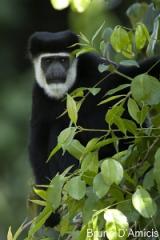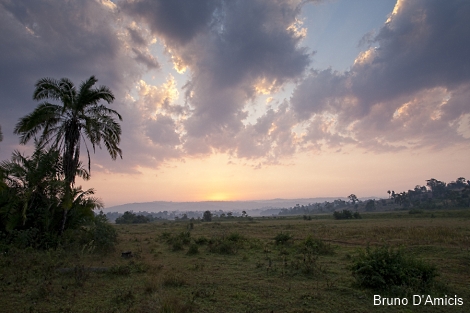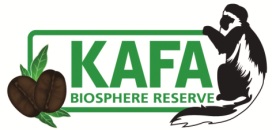EXPLORE » BIOSPHERE RESERVE
BIOSPHERE RESERVE

Since the early 1970s, the Man and the Biosphere (MAB) Programme of the UNESCO (United Nations Educational, Scientific and Cultural Organization) has been aiming to promote sustainable development and tackle biodiversity loss. The tool to achieve this goal are the so-called ‘biosphere reserves’, which are model regions to harmonize human development with nature conservation and the preservation of cultural values. Through innovative and integrated approaches, the local population is enabled to live and work in harmony with nature. Currently, there are 651 biosphere reserves in 120 countries (June 2015).
In 2010, the Kafa region in the southwest of Ethiopia has been established as one of the first biosphere reserves of the country, which covers an area of approximately 760,000 hectares and includes a population of around 1 million people. To date exist four biosphere reserves in Ethiopia: Kafa (2010), Yayu (2010), Sheka Forest (2012) and Lake Tana (2015). The acceptance of the Kafa region into the UNESCO World Network of Biosphere Reserves has been an important step towards the conservation of the outstanding cultural and natural treasures of this area, while at the same time the economic development of the local people is promoted.

The Nature and Biodiversity Conservation Union (NABU) has been supporting the set-up and management of the Kafa Biosphere Reserve through two projects: ‚Climate Protection and Preservation of Primary Forests – A management Model using the Wild Coffee Forests as Example‘ (2009-2014) and ‚Biodiversity under climate change: Community based conservation, management and development concepts for the wild coffee forests‘ (2014-2017). A local team based in Bonga, the capital of Kafa, collaborates with regional and local governments of the Southern Nations, Nationalities, and Peoples' Region (SNNPR) to work towards long-term sustainability goals. Activities within these projects include, for example, tree planting, participatory forest management, watershed conservation, ecotourism development, fuel efficient stoves, regional product development and marketing, environmental awareness campaigns and ranger programmes.
Please find out more about the projects in the Biosphere Reserve here.
